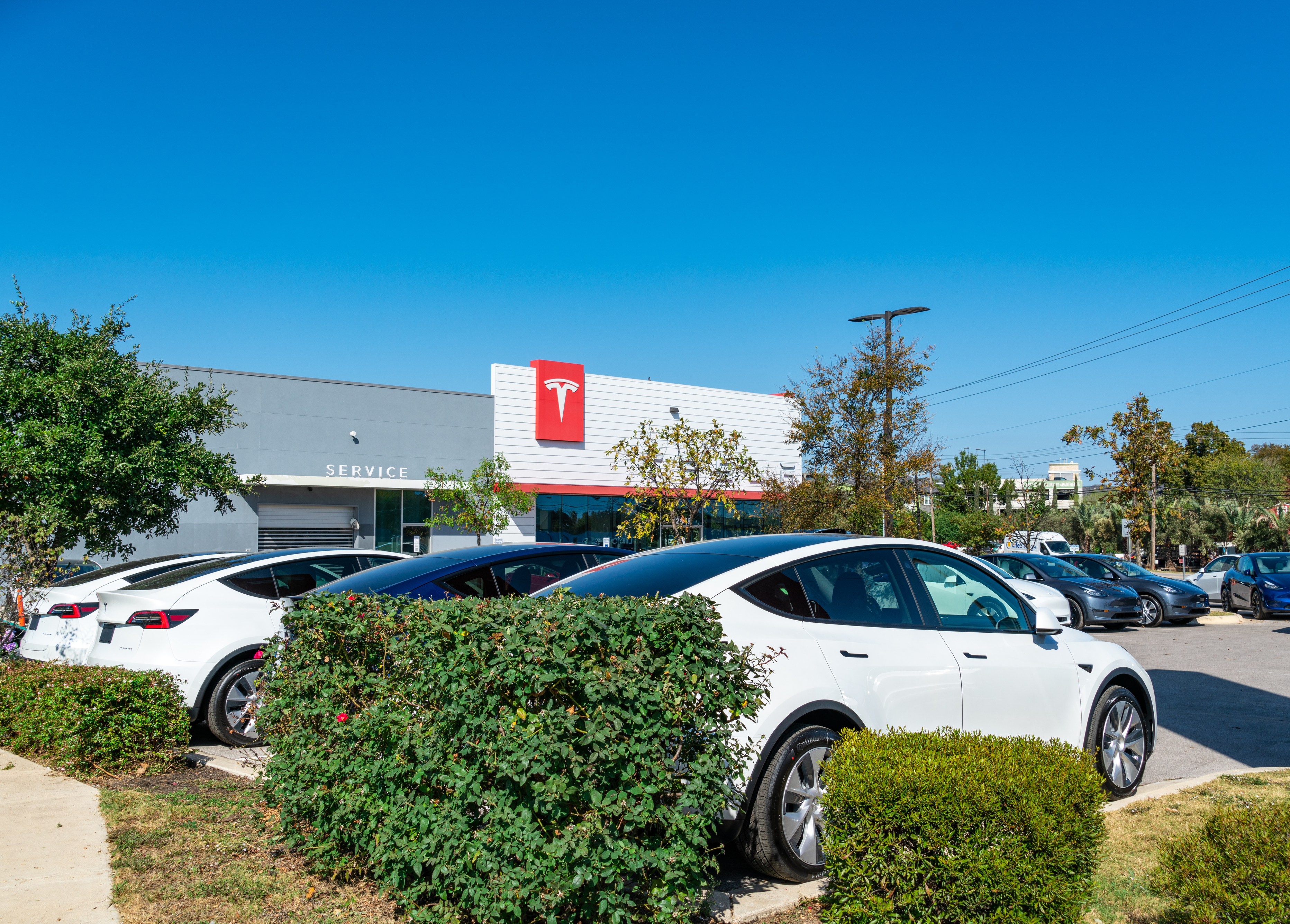
Tesla Added To The S&P 500
Shares of Tesla, Inc. increased to a record high last week. The automobile company joined the S&P 500 December 21 and investment funds that model the S&P 500 purchased 1.7 billion Tesla shares just before the markets closed on Friday, Dec. 18, according to The Wall Street Journal. Tesla's share price increased $39.10 to $695, which boosted its market capitalization to over $660 billion, the highest in the automotive industry.
In July 2017 Higher Rock Education published Tesla - 4 Points You Should Consider Before Buying Its Stock or Car. The blog has been updated in light of the growth in Tesla and its inclusion in the S&P 500.
Tesla, Inc. is a fascinating company. In just 17 years it has emerged as a leader in technological innovation in the automotive industry by building electrical cars that are fun to drive, attractive to look at, with the most advanced self-driving technology. Its mission is to "accelerate the world's transition to sustainable energy." (Tesla.com) Elon Musk, who joined the company in 2004, has led the company to where its market value is the largest in the industry – even though Tesla earned its first operating profit in 2019. In 2018 operations lost nearly $253 million. Yet, the company is valued at 628 billion, more than any other automobile manufacturer. Why is Tesla valued so high?
Tesla's story is compelling. I am enamored with high performing, and sleek cars. I also root for people and companies that take large risks to create a new company or product. Tesla fits into both categories. Tesla's Model S can accelerate from 0 to 60 in 2.5 seconds, which is one of the 10 fastest cars ranked by Driving. It also offers advanced self-driving technology according to RAC. Most intriguing – all Tesla cars are electric!
In the past 12 months, Tesla's sales have grown 155 percent, while most of the other companies experienced declining sales. Tesla introduced its Model 3 in July 2017 to appeal to the middle class. Sales boomed. Before the Model 3 was released approximately 400,000 people deposited $1,000 to reserve a car.
Source: Goodcarbadcar
Tesla's story revolves around Elon Musk. Mr. Musk is an entrepreneur with extraordinary vision. He attacks major problems most of us would not consider, including the extinction of humanity, sustainability, and climate change. He has risked his financial security many times in his quest to solve these problems.
Mr. Musk was born in Pretoria, South Africa on June 28, 1971 during the middle of the apartheid movement. His mother was Canadian and his father was South African. In 1989, at age 17, he moved to Canada and matriculated at Queens University. He left Queens University to attend the University of Pennsylvania, where he earned a Bachelor of Science in Electrical Engineering and Economics from the Wharton School of Business. Following graduation, he enrolled at Stanford University, but dropped out after only two days to start his first company, Zip2 Corporation with his brother.
Zip2 was a city guide for the Internet. It provided on-line maps, directions and business listings. Zip2's primary market was newspapers. Compaq Computer Corporation purchased Zip2 in 1999. Musk rolled his gains into starting X.com, which later became PayPal, and was eventually sold to eBay for $1.5 billion. His share of the sale proceeds was $185 million. Many of us would have been content to just enjoy our new wealth. Not Elon Musk. PayPal provided the experience and money needed to pursue his vision of reducing humanity's vulnerability to extinction by colonizing Mars and building electrical cars.
Climate change, artificial intelligence, more sophisticated weaponry in the hands of more questionable foreign leaders are a few of the man-made threats to humankind. The possibility of an asteroid colliding with the earth is another. Musk's solution - colonize Mars. He started SpaceX with that goal and believes man will visit Mars in two decades. There are only five entities that have sent a rocket into space and safely returned a portion of it: the US, Russian, and Chinese governments, SpaceX, and Blue Origin. SpaceX has contracted with NASA to equip and transport astronauts to the International Space Station.
Tesla was not founded by Elon Musk, but Mr. Musk has provided the leadership and capital to make Tesla what it is today. Elon Musk had the courage to risk his financial security when Tesla needed it most. He is currently Tesla's largest shareholder and owns over 20 percent of the company. (Investopedia)
Elon Musk is very concerned about the environment. Gas driven cars generate a lot of carbon. Electrical cars do not. Tesla is not the first company to enter the electric car market, but in the early 2000s electric cars were not very economical and lacked performance. Tesla is the first company to manufacture a high performing, and visually appealing totally electric car. The environmentally concerned Musk also ventured into solar power when Tesla acquired SolarCity, the second largest producer of solar panels. One goal is to power his "filling" stations with solar power. He also wants to reduce the carbon footprint left by electrical generating plants.